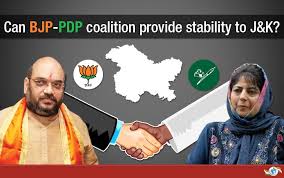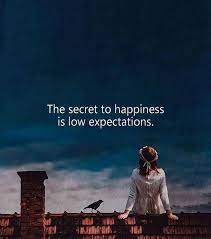The reduction of the Jammu and Kashmir Assembly chamber to a wrestling arena on Thursday has been roundly condemned — rightly so. But one needs to go beyond shock, anger and despair. For the unsavoury incident (a member thrashed in the House for having hosted a public beef party) highlighted a systemic malaise: The deeply divisive frame that the PDP and the BJP have adopted for their alliance.
 Both major coalition partners talk of representing the state’s two main regions, Jammu and Kashmir, respectively. The subtext is that each represents one of the state’s two main religions. They insist on reading the mandate of 2014 thus. This is dangerous. The experiment in Lebanon showed the fragility of such specifically religion-based political alliances. In this case, it points inexorably towards a communal division of the state. Not only could that cause rivers of blood in the Chenab basin, but it would further blight the future of South Asia.
Both major coalition partners talk of representing the state’s two main regions, Jammu and Kashmir, respectively. The subtext is that each represents one of the state’s two main religions. They insist on reading the mandate of 2014 thus. This is dangerous. The experiment in Lebanon showed the fragility of such specifically religion-based political alliances. In this case, it points inexorably towards a communal division of the state. Not only could that cause rivers of blood in the Chenab basin, but it would further blight the future of South Asia.
It is true that the BJP won all its seats from the Jammu division and the PDP from the Kashmir Valley. But to reduce that to a communal-regional polarity is to play politics with geography. Think of it this way: The pan-Indian mandates of 1977 and 1980 too were to a large extent geographically polarised, but nobody spoke of dividing south India from north India.
Last winter’s Jammu and Kashmir verdict certainly means that the two regions have divergent aspirations at this point, but that calls for nuanced policies to satisfy both sets of aspirations and for a political initiative to bridge the divide. Most of all, it calls for concerted coalition unity. Competitive communal politics will not only deepen the wedge, it could set off a spiral. For unexpected more-religious-than-you players have a way of gliding out of the woodwork.
The fact is that sociological conflicts based on religion, ethnicity, region, sect or tribe are symptoms of structural – economic and administrative – root causes. Powers must devolve to Panchayati Raj institutions, civil society institutions must be strengthened and corruption controlled so that entrepreneurship, investment, industry and other legitimate economic and social activity may thrive. The current dole economy combines with patronage politics to not only stifle the economy but also to generate sloth, repression, extortion, alienation – and finally, violent responses. Without appropriate curative measures, dividing the state into two, three or even ten portions will only multiply the problem, not solve it.
A coalition government must work cohesively to forge a united future for the state. Failure to do so will pave the way for what leading Pakistanis have described as `completing the incomplete task of Partition.’ Ironically, Mr Jinnah used exactly this issue to illustrate the Two-Nation Theory. Hindus worship the cow and Muslims eat it, he pointed out, so how could they be one nation?
At another level, Thursday’s violence in the Assembly chamber highlighted the fact that democracy in Jammu and Kashmir has never functioned through debate and consensus. It has either been conducted through demonstrative protest, as in the Independent MLA’s beef party, or violence, as by RSS members in the Assembly chamber. In fact, the structures of democracy have remained a sham for the most part.
Until recently, most elections have been rigged. Chief ministers have repeatedly been changed at New Delhi’s whim. Assembly resolutions have been dismissed out of hand.
Chief Minister Mufti Sayeed had changed the discourse substantially during his first stint in power (2002-2005) following elections that were universally said to be free and fair. He gave his deputy chief minister due regard, consulted his coalition partners and the opposition, and nurtured democratic space in the traumatised Valley. However, he could not adequately accommodate, or perhaps even grasp, the aspirations that had rapidly grown in Jammu since the 1990s.
Jammu’s rapid economic expansion since the early 1990s gave Jammuites’ longstanding resentment against perceived domination political ballast. Ghulam Nabi Azad’s dynamic development work, particularly across the Jammu division, when he came to power from 2005 to 2008, made it likely that the Congress would win the 2008 election with a near-majority. The panicking PDP seized upon land transfer to the Amarnath Shrine Board, Governor SK Sinha’s pet project for expanding the Hindu pilgrimage. It became a convenient political issue. The resultant conflagration severely damaged the social fabric of the state.
None of the political parties that played land transfer politics in 2008 realised quite how divisive it would become. Now that the chief gainer, the BJP, has joined hands with the party that had hoped to gain, the duo seems to have got involved in a more dangerous game, even if inadvertently. Any leaders worth their name in either party would do well to point their party strategists to lessons about the costs of mixing religion with politics which could be learnt from the US-Pakistan axis’ lethal experiment with the geopolitics of jihad three decades ago.
By David Devadas





